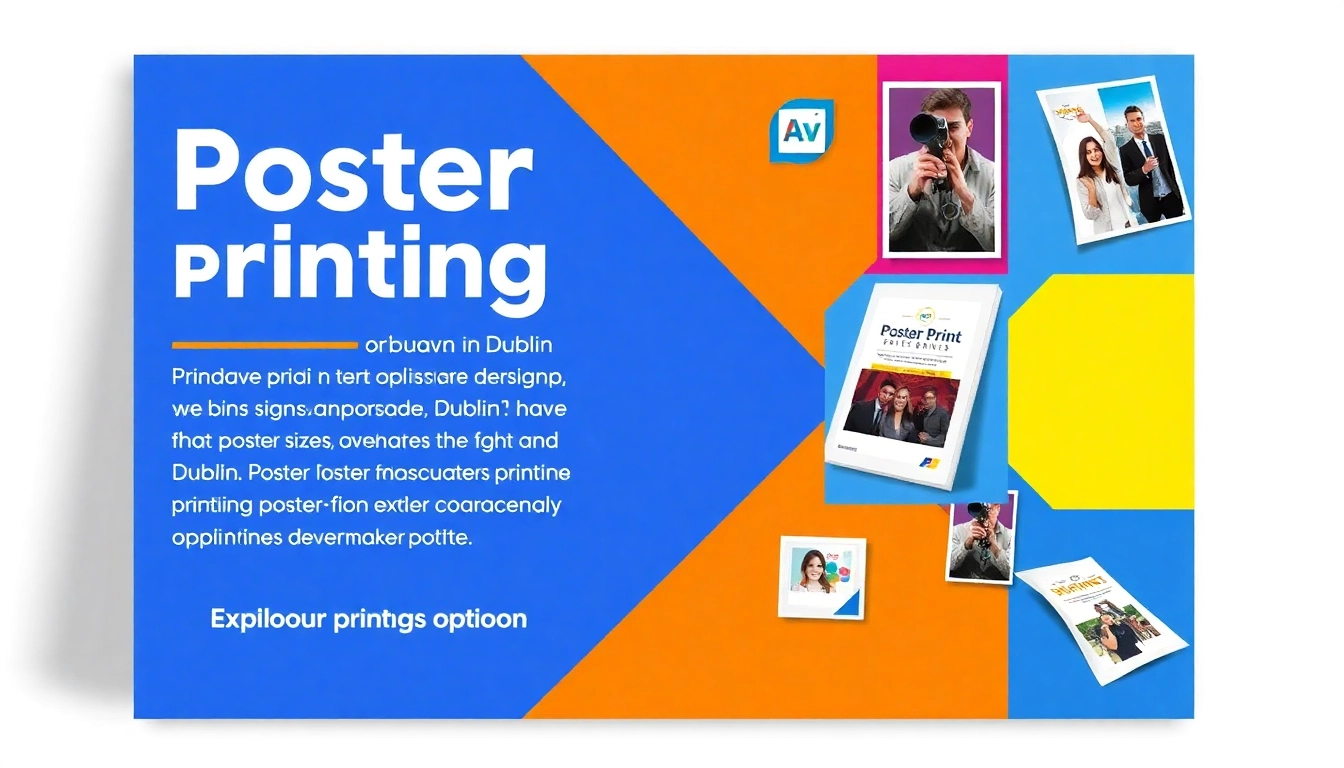Understanding the Role of a Content Agency
In today’s digital landscape, the role of a Content Agency has become essential for businesses looking to navigate the complexities of online communication and branding. Content agencies serve as partners for various organizations, crafting tailored content strategies that align with specific business goals while resonating with target audiences. This section delves into what makes content agencies unique, the importance of an effective content strategy, and key services they provide.
What Makes a Content Agency Unique?
Content agencies differ from traditional marketing firms as they focus primarily on content as a medium for connection rather than just a promotional tool. Their uniqueness lies in their multifaceted approach:
- Expertise in Content Creation: Unlike generalist agencies, content agencies have specialized teams skilled in various forms of content, from blogs and articles to videos and infographics.
- Strategic Focus: They prioritize developing a deep understanding of the client’s audience, ensuring that content is not only engaging but also purposeful.
- Analytics and Adaptability: Content agencies leverage analytics to measure performance and adapt strategies in real-time, optimizing campaigns for better results.
The Importance of Content Strategy
A well-defined content strategy is critical for any successful content agency. It serves as a roadmap, guiding clients through the process of content creation, distribution, and engagement. Key components include:
- Defining Goals: Clear objectives help measure the impact of content on business outcomes.
- Audience Analysis: Understanding the demographics, preferences, and behaviors of the target audience ensures relevance.
- Content Planning: A strategic calendar helps manage the production and release of content, maintaining consistency and audience interest.
Key Services Offered by Content Agencies
Content agencies offer a diverse range of services to meet the unique needs of their clients. Some key offerings include:
- Content Creation: From blog posts and articles to social media content and video scripts, agencies provide comprehensive content solutions.
- Search Engine Optimization (SEO): Content agencies implement SEO strategies to enhance visibility and organic search rankings.
- Content Strategy Development: Crafting tailored content strategies that align with business goals and audience needs.
- Content Promotion: Utilizing various channels for distribution and promotion to maximize reach and engagement.
- Analytics and Reporting: Tracking performance metrics to assess content effectiveness and inform future strategies.
Establishing Your Content Agency’s Brand Identity
Building a strong brand identity is crucial for any content agency aiming to stand out in a competitive landscape. A well-defined brand helps attract clients and establish trust. This section focuses on crafting a powerful brand message, designing a cohesive visual identity, and utilizing social media for branding.
Crafting a Powerful Brand Message
Your brand message reflects your agency’s values, mission, and promise to clients. To craft an impactful brand message:
- Identify Your Unique Selling Proposition (USP): What sets your agency apart? Highlight these differentiators in your messaging.
- Use Clear and Engaging Language: Your message should be succinct yet compelling, conveying the essence of your services.
- Consistency is Key: Ensure that your brand message is consistent across all platforms and materials, from your website to your social media profiles.
Designing a Cohesive Visual Identity
A cohesive visual identity is essential for brand recognition. Elements to consider include:
- Logo Design: A memorable logo serves as the visual anchor for your brand.
- Color Palette: Choose colors that evoke the desired emotions and align with your brand values.
- Typography: Consistent typography across your materials reinforces your brand’s voice.
Utilizing Social Media for Branding
Social media platforms are invaluable for building brand identity and engaging with potential clients. Strategies include:
- Content Sharing: Regularly share valuable content that showcases your expertise and connects with your audience.
- Engagement: Interact with followers through comments, messages, and shares to foster relationships.
- Paid Advertising: Consider utilizing paid ads to increase visibility and reach a broader audience.
Building a Diverse Client Base
A successful content agency must cultivate a diverse client base to thrive. This section explores defining your target market, effective outreach techniques, and leveraging partnerships and collaborations.
Defining Your Target Market
Understanding who your ideal clients are is fundamental to your agency’s growth. To define your target market, consider:
- Industry Segmentation: Identify which industries can benefit most from your services, whether it’s technology, healthcare, or e-commerce.
- Size of the Business: Determine the scale of businesses you want to work with—startups, SMEs, or large enterprises.
- Budget Considerations: Tailor your services and offerings to fit the budget range of your target clients.
Effective Outreach Techniques
To attract potential clients, agencies must deploy effective outreach techniques, including:
- Networking: Attend industry events, conferences, and workshops to meet prospective clients and establish relationships.
- Email Campaigns: Create targeted campaigns that offer value to recipients—such as free resources or consultations.
- Content Marketing: Produce informative content that addresses common pain points of your target market, positioning yourself as an expert.
Leveraging Partnerships and Collaborations
Partnerships enhance credibility and expand your reach. Strategies include:
- Joint Ventures: Collaborate with complementary businesses to offer bundled services.
- Affiliate Programs: Establish affiliate relationships to incentivize referrals and broaden your audience.
- Cross-Promotion: Work with other agencies or influencers to promote each other’s services across platforms.
Crafting High-Quality Content
The cornerstone of any content agency’s success is its ability to craft high-quality content that engages and informs. This section discusses understanding audience needs, best practices for content creation, and measuring effectiveness and engagement.
Understanding Audience Needs and Preferences
High-quality content starts with a clear understanding of your audience. Techniques to gather insights include:
- Surveys and Polls: Utilize tools to gather direct feedback about content preferences and pain points.
- Social Media Insights: Analyze engagement metrics to identify trending topics and content formats.
- Competitor Analysis: Review what competitors are producing and uncover gaps in content that your agency can fill.
Best Practices for Content Creation
When creating content, employ these best practices:
- Focus on Quality Over Quantity: It’s better to produce fewer pieces of high-quality content than frequent low-value posts.
- SEO Optimization: Optimize content for relevant keywords to enhance visibility on search engines.
- Engaging Titles and Descriptions: Craft compelling headlines that capture attention and drive clicks.
Measuring Content Effectiveness and Engagement
To assess the impact of your content, employ various metrics:
- Traffic Analytics: Track visits, time spent on page, and bounce rates to gauge interest.
- Engagement Rates: Monitor likes, shares, and comments to understand how well content resonates with the audience.
- Conversion Tracking: Measure how many visitors take action, such as signing up for newsletters or requesting quotes, after engaging with your content.
Scaling Your Content Agency for Success
To achieve sustained growth, a content agency must implement strategies for scaling operations effectively. This section covers workflow automation, hiring and retaining talent, and expanding service offerings.
Implementing Workflow Automation Tools
Automation tools streamline processes and enhance productivity. Key tools include:
- Content Management Systems (CMS): Use CMS tools to schedule, publish, and manage content seamlessly.
- Email Marketing Platforms: Automate your email campaigns for lead generation and nurturing.
- Social Media Management Tools: Schedule posts and analyze performance across channels, saving time and ensuring consistency.
Hiring and Retaining Top Talent
Your agency’s success heavily relies on the skills and creativity of its team. Strategies for hiring and retaining talent include:
- Comprehensive Hiring Processes: Focus on both skills and cultural fit during the recruitment process to build a cohesive team.
- Continuous Learning Opportunities: Invest in professional development for your team to stay abreast of the latest trends and technologies.
- Fostering a Positive Work Environment: Encourage creativity and collaboration to enhance job satisfaction and retention rates.
Expanding Service Offerings and Market Reach
As your agency grows, consider expanding your service offerings and market reach. Strategies include:
- Diversifying Content Formats: Introduce services like video production, podcasting, or graphic design to attract new clients.
- Targeting New Markets: Explore industries or geographic areas that are underserved and develop tailored offerings for these audiences.
- Enhancing Client Relationships: Build long-term relationships with current clients by offering additional services that align with their evolving needs.



